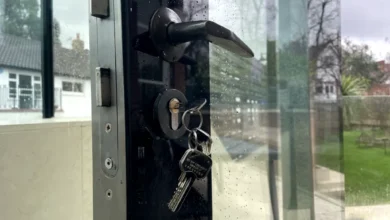Building Strong Teams: Trust and Collaboration in the Workplace

Strong teams are the bedrock on which every organisation succeeds. An effective team can spur innovation, increase productivity, and foster a positive office culture. Trust and collaboration are two basic parameters in promoting a strong team. In this article, we discuss the significance of these aspects while sharing methods to develop such characteristics in the office.
Contents
The Importance of Trust in Teams
Why Trust Matters?
Trust is the pillar of every successful team. It enables team members to depend on each other, offer ideas in an open environment, and help one another. Lack of trust can cause teams to divide, communication begins (and essentially, it means stop), and productivity is ultimately affected.
Building Trust
Transparency
You must communicate clearly and consistently while making sure that your decision-making process is transparent. The more the slot game’s team knows about what is happening within the organisation and why decisions are made that could affect them, the more they will feel like they are part of something special.
Accountability
That is humanity in you and accountability. Holding team members accountable (even yourself) for breaking such trust builds it. Making sure that everyone is pulling their weight and that every one of them has a stake in the game. Accountability also means recognising mistakes and owning up to them, which increases trust as others see a willingness toward betterment.
Consistency
Consistent behaviour and expectations are critical to establishing trust in the long haul. Consistency and stability – leaders who act consistently, conform to cultural norms and create a reliable workplace.
The Role of Collaboration in Team Success
Benefits of Collaboration
Collaboration has the power to multiply the skills and viewpoints of team members, giving you better ideas on how to solve problems. It fosters learning and development as knowledge sharing among team members is facilitated.
Encouraging Collaboration
Creating a Collaborative Culture
A culture that values collaboration is vital. This includes advocating for open conversation, endorsing working as a team, and celebrating the successes of the collaboration. The way leaders role model such behaviour can significantly impact the tone at the team level.
Tools and Technologies
Tools and technologies that make it easier to collaborate are going a long way in improving teamwork. There are platforms like Slack, Trello, or Microsoft Teams that mahjong ways 2 space for better collective communication and exchange project management frameworks while enabling file sharing.
Team Building Activities
Organising team-building activities can help build relationships and enhance cooperation. These exercises help us identify our strengths and what work styles work well together, allowing for an improved group dynamic.
Integrating Trust and Collaboration
Communication
They go hand in hand. You will establish trust with one another, which is important to be effective as a team, so the more you talk openly, honestly, and frequently, the easier it will be. To communicate well, regular informal check-ins are also key, and there should be a norm for formal team meetings and feedback dialogue.
Leadership
Strong leadership is vital to connect the dots on Trust & Collaboration. Transparent, accountable leaders must be consistent. They should also promote collaboration, create space for team members to work together, and reward collaborative efforts.
Conflict Resolution
Conflicts are never avoidable on any team. However, trust and cooperation can be more or less founded on it, depending, of course, on how they are managed. Dealing with conflicts openly and constructively resolves issues while acting to unite the team.
Strategies for Building Strong Teams
Establish Clear Goals and Roles
Knowing the end goal or what a successful outcome looks like will direct team members toward the expected results. This clarity helps prevent misunderstandings and makes sure that everyone is pulling in the same direction.
Foster a Positive Work Environment
Team members who feel valued will have respect for their colleagues and, therefore, your WFH policy. It means celebrating success and seeking advice and feedback from the team to ensure they can share their best thoughts/ideas/notions.
Invest in Professional Development
Training is a great way to deepen the level of trust with all team members and ultimately, collaboration. Offering opportunities to train and develop their skills demonstrates that the company appreciates its staff as an investment for success.
Conclusion
Trust and collaboration are fundamental to building strong teams, which in turn is a key success factor for any organisation. Leaders can design a culture that respects and enhances these attributes by emphasising traits like transparency, accountability, consistency, and communication being coherent with purpose formulating. Engage in team-building activities, use collaboration tools, and provide professional development to create a stronger bond between them.




